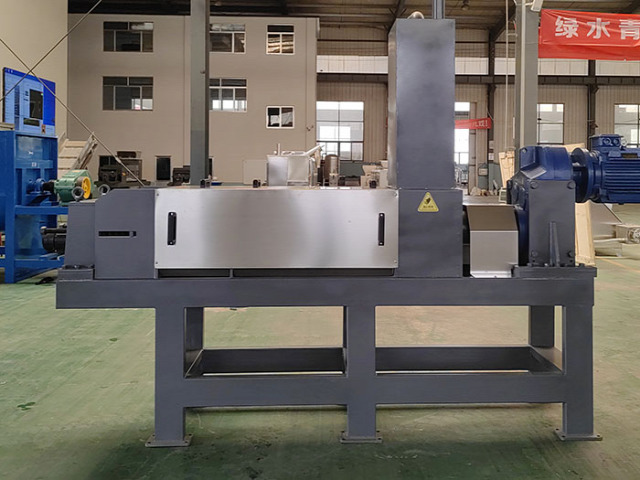In an era where environmental consciousness is rapidly gaining prominence, industries across the globe are seeking innovative solutions to minimize their ecological footprint. One such groundbreaking technology is the screw press dewatering machine, and at the forefront of this revolution is Tianzhong Machinery. As a leading supplier of screw press dewatering machines, Tianzhong Machinery plays a pivotal role in driving sustainability in various sectors. This article delves into the environmental benefits of screw press dewatering machines, highlighting how Tianzhong Machinery is shaping a greener future.
1. Reduced Water Content:
The core function of a dewatering machine is to extract excess water from sludge and wastewater, or manure or other waste materials. By significantly reducing the moisture content, the volume of material is minimized. This reduction translates to lower transportation and disposal costs. Moreover, decreased water content makes the remaining material easier to handle, creating efficiency gains in waste management processes.

2. Lower Transport Costs:
Dewatered solid occupies less space and weighs less due to the removal of water. As a result, transportation costs are substantially reduced. Fewer trips are required to transport the dewatered material to disposal sites, leading to lower fuel consumption and reduced greenhouse gas emissions associated with transportation.
3. Energy Efficiency:
Compared to other treatment methods, screw press dewatering typically require less energy. With a lower volume of water to process, pumping requirements and energy consumption decrease. This not only saves costs but also contributes to overall energy efficiency, aligning with sustainability goals.
4. Minimal Environmental Impact:
By reducing the volume of sludge and wastewater, dewatering machines alleviate the burden on landfills and sewage treatment facilities. This reduction in volume minimizes the environmental impact of storage and disposal. The result is a more responsible and sustainable approach to waste management.
5. Biogas Production Enhancement:
Wastewater treatment plants often utilize dewatered sludge for anaerobic digestion, which produces biogas—an environmentally friendly energy source. The reduced water content in dewatered sludge enhances the efficiency of the digestion process, leading to increased biogas production. This renewable energy can be used to power various operations within the facility.

6. Improved Treatment Efficiency:
With a lower water content in the sludge, downstream treatment processes become more efficient. Treatment facilities can focus their resources on more effective treatment methods, resulting in higher quality treated water that can be safely discharged into the environment.
7. Odor Reduction:
Dewatering helps to mitigate the production of foul odors. As the water content decreases, the conditions conducive to the growth of odor-causing microorganisms are minimized. This leads to a reduction in the emission of unpleasant odors, creating a more pleasant environment for workers and nearby communities.
8. Regulatory Compliance:
Industries generating sludge and wastewater are often subject to strict environmental regulations. Dewatering machines help organizations meet these regulatory requirements by producing drier, easier-to-handle waste that can be disposed of in accordance with environmental standards.
9. Resource Recovery:
Dewatered sludge can contain valuable resources such as organic matter and nutrients. These resources can be recovered and repurposed for agricultural applications, closing the loop on resource utilization. This practice reduces the need for synthetic fertilizers and promotes circular economy principles.
In conclusion, the adoption of screw press dewatering machines offers a range of environmental benefits across multiple sectors. From reducing water content and transportation costs to enhancing energy efficiency and resource recovery, these machines play a pivotal role in promoting sustainable waste management practices. By incorporating dewatering technology into their operations, industries can contribute to a more environmentally conscious future while simultaneously realizing economic advantages.

